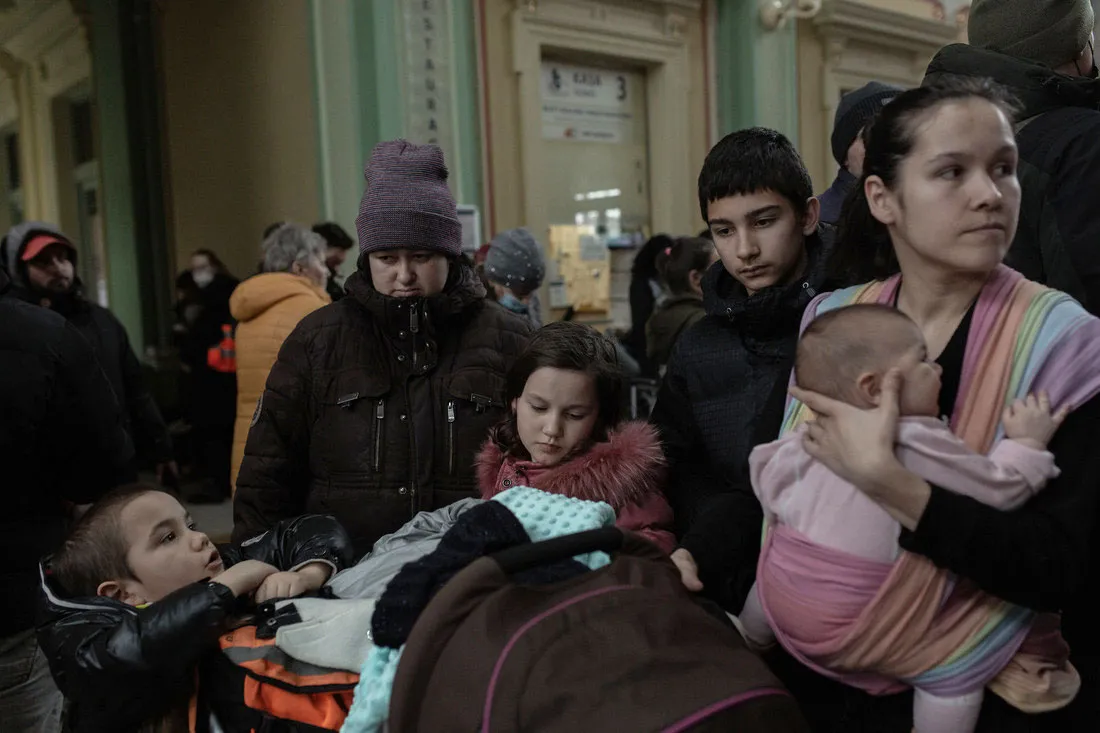(Vienna, March 3, 2022) More than 870,000 people fleeing Ukraine to neighboring countries are in urgent need of assistance. “People in Need“, the partner organization of CARE Austria, provides them with food and hygiene items. The first trucks with food, diapers and sleeping bags have arrived in Lviv. A cargo train with relief goods is on its way from Prague.
Families are desperately trying to escape to neighboring countries. Due to the fact that men between the ages of 18 and 60 have to stay in Ukraine, many women with children are left to fend for themselves. The border crossings are overcrowded. Mothers often have to wait up to two days in the freezing cold with babies and small children. Some sleep in cars, some have to hold out in the open without shelter in the freezing cold before the border.
CARE’s partner organization is also working on the Slovak-Ukrainian border with a team of aid workers. They have set up heated tents where the exhausted mothers and children can warm up and rest. Upon arrival, they are given tea and a hot meal. There are also sanitation facilities there, such as portable toilets. In addition, trained teams are provided for crisis intervention and psychosocial assistance.
“Many have to come to terms with the terrible experiences of war,” says Andrea Barschdorf-Hager, executive director of CARE Austria. “Psychosocial help is very important now. People need someone they can talk to. We are in a war situation, and we need to make the refugees feel welcome and let them know they have a safe place to come to and stay.”
In the eastern Slovak village of Vyšné Nemecké, there is also a large heated tent for up to 200 people set up by CAREs partner organization. Refugees can also spend the night there. The local volunteers provide them with food, drink, hygiene products and SIM cards so that they can stay in contact with their families.
“Most refugees have someone in neighboring countries who will take them in. They are on their way to friends, family or acquaintances,” says Marek Štys, Head of Humanitarian Aid at “People in Need”. “But that can change abruptly if the conflict escalates. If a large number of refugees arrive without contacts and seek protection, the whole situation could become very challenging.”
For More Information:
Dorissa White
CARE Junior Press Officer
Dorissa.white@care.org

